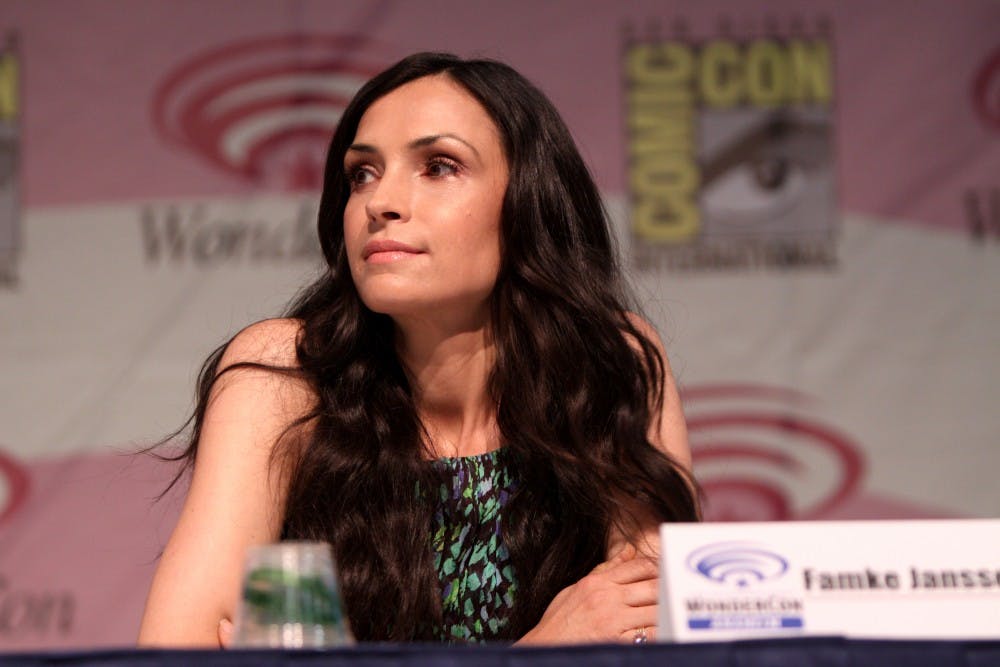Over spring break my parents and I embarked on the ambitious project of watching as much of Marvel’s eight-movie X-Men franchise as possible in order to jump on the bandwagon and go see Logan, the ninth, critically acclaimed installment, in theaters. I was home in suburban Philadelphia, not Cancun. There wasn’t much else to do.

And it was totally worth it. Logan is incredible. But that’s not why I’m writing this article. I’m writing this because of my frustration with the franchise’s treatment of one of its central female characters, Jean Grey, and my hope that she will get a better storyline in the franchise’s ongoing prequel series.
For those unfamiliar with the series, which began with 2000’s X-Men, it tells the story of human mutants, who are born with superhuman abilities as a result of evolutionary genetic mutations. The X-Men is a team of mutants who serve as peacekeepers between mutants and human beings and are led by Professor Charles Xavier (Patrick Stewart). Professor X is a telepath who helps the X-Men and child mutants who attend his Xavier School for Gifted Youngsters learn to control their powers and use them for good.
The X-Men include Storm (Halle Berry), who can control the weather; Scott, aka Cyclops (James Marsden), whose eyes emit optic blasts kind of like lasers; Logan, aka The Wolverine (an ab-licious Hugh Jackman), who has metal claws; and Jean (Famke Janssen), who has telekinetic powers.
Jean is the most powerful mutant of them all, including Professor X. Although she is unaware of the full extent of her abilities for many years, she knows enough to be wary of using them, which frequently leads her to experience self-doubt. But she always steps up when it comes to helping those she cares about like Scott, her long-time boyfriend, and Logan, a jaded newcomer-turned-friend who develops feelings for her.
In fact it is her selflessness and compassion that are Jean’s most powerful and superhuman abilities as demonstrated at the end of X2: X-Men United (2003). After rescuing a group of Xavier’s students who had been kidnapped by military scientists for experimental purposes, the X-Men board their plane home just as the facility’s dam breaks, unleashing a deadly tidal wave.
Naturally the plane’s electrical system fails right then and Jean realizes the only way to save everyone is to start the plane herself while also diverting the water long enough to get it safely in the air. So she stoically and inconspicuously exits the plane before Scott and Logan can stop her and gives her life to save her friends.
I found this to be a beautiful and empowering ending to Jean’s arc, although her death was, of course, upsetting. But immensely more upsetting was what happened after she was miraculously resurrected in 2006’s X-Men: The Last Stand and becomes a psychotic mass murderer.
First she brutally vaporizes Scott for no apparent reason, and then she passes out. When Storm and Logan eventually catch up with her, they take her back to Professor X’s mansion, the team’s base of operations. There we find out that, unbeknowst to Jean, Professor X had years ago put mental barriers in Jean’s mind to separate her normal personality from a dark, psychotic part of her that he refers to as the Dark Phoenix. When she sacrificed herself, this personality was apparently unleashed and somehow brought her back to life.
Enraged by Professor X’s attempt to control her, Jean unleashes her full power and ends up killing him. She then joins forces with Magneto (Ian McKellan), a metal-bending mutant who believes mutants should take their rightful place as lords over the inferior human race. He also promises that he will never try to control her. Magneto leads an assault on a research facility that has just developed a cure to mutanism. When the X-Men arrive to intervene, all hell breaks lose. Eventually soldiers armed with the cure arrive to stop the mutants, sending Jean into an uncontrollable fit of rage that terrifies even Magneto. She vaporizes all the soldiers and even some mutants.
Wolverine, who has enhanced healing abilities, is the only who can get close enough to stop her, and he knows what has to be done. In an absurdly short and emotionally flat scene, Logan stabs her after she asks him to “save” her, revealing Jean is still somewhat Jean. To be fair Logan breaks down as he cradles her dying body, but the scene is still anti-climactic as hell.
So here are my problems with this storyline. First, what reason do we have to believe that Jean has always had this psychopathic alternative personality or, in other words, that she has always been inherently evil? To be fair, Marvel did publish comics with a Dark Phoenix storyline back in the ‘70s in which Jean was corrupted by her powers and also turned into a mass murderer. But guess what? They later retconned that storyline in favor of one in which the Dark Phoenix takes Jean’s form but isn’t actually her, making Jean completely blameless.
Second, Jean has no opportunity for redemption. She shows virtually no internal struggle while committing such atrocities, making her desire to sacrifice herself at the end seem random and making her actions much worse. Even though she asks Logan to kill her, he is ultimately the hero because he approaches her with the intent to kill regardless of being asked.
And to put this into context, even in the retconned Dark Phoenix comic, the evil Jean Grey comes to a moment of realization and takes her own life before she hurts anyone else. She’s given the dignity of saving the day rather than letting someone else to do it for her.
Ultimately the storyline proved so controversial that one of the screenwriters of The Last Stand later wrote X-Men: Days of Future Past (2014), which created a new timeline, completely erasing the events of The Last Stand from history and leaving Jean, Scott and Professor X alive and well at the end movie.
The question now is whether history will repeat itself again in this new timeline. The X-Men franchise began a prequel series in 2011, featuring the origin stories of Xavier, Magneto and the X-Men. Last year’s X-Men: Apocalypse introduced young Jean Grey (Sophie Turner) as a teenager fearful of her powers and a “dark power growing inside [her],” strongly suggesting that another Dark Phoenix is coming down the pike.
If they are going to establish a basis for Jean having a darker side, which the original trilogy failed to do, I think I could get on board. But the producers and writers would do well to keep in mind that there’s a big difference between Jean becoming overwhelmed by her power and becoming evil.

















